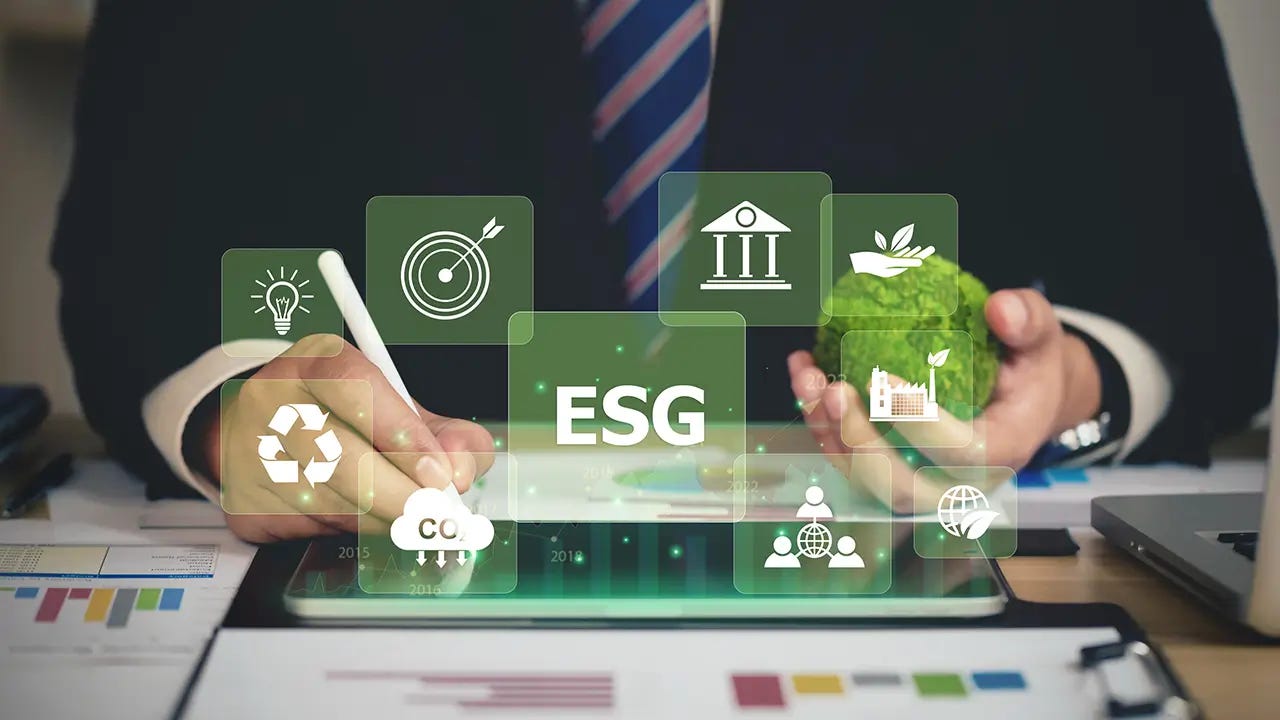The Future of Sustainability Reporting in South Africa
Understanding the evolving landscape of corporate ESG reporting.
South Africa is on the cusp of a significant transformation in corporate governance and sustainability practices. While currently, Environmental, Social, and Governance (ESG) reporting remains voluntary, the country is laying the groundwork to implement mandatory disclosures, aiming for full implementation in the coming year. These efforts will align South Africa with international standards, ensuring that companies are prepared for a future where transparency and accountability in ESG matters are paramount.
Transitional Phase: Preparing for Change
As of now, ESG reporting in South Africa is voluntary. However, the Department of Trade, Industry, and Competition (DTIC) is actively working on amending the Companies Act to formalize these requirements. This amendment was introduced in the parliament on August 28, 20231 and will define the scope of entities required to disclose their ESG data, setting the stage for a more transparent and accountable corporate environment.
During this transitional phase, companies are encouraged to familiarize themselves with the forthcoming requirements and begin integrating ESG considerations into their business strategies. This proactive approach will not only ensure compliance but also position companies as leaders in sustainability. Organizations can also choose to report voluntarily, further preparing for the upcoming requirements.
Key Regulatory Developments
Companies Act Amendment
The DTIC's initiative to amend the Companies Act is a pivotal step in formalizing ESG reporting requirements. This amendment will provide a clear legal framework, outlining the obligations of companies regarding ESG disclosures. By establishing these requirements, South Africa aims to enhance corporate transparency and align with global best practices.Financial Sector Conduct Authority (FSCA) Consultation on Corporate Sustainability Disclosure
The FSCA is consulting on the introduction of corporate sustainability disclosure requirements, with an initial focus on mandatory climate disclosure requirements for large, listed corporations. This consultation seeks to gather input from stakeholders to ensure that the forthcoming regulations are effective and practical. The FSCA's approach underscores the importance of stakeholder engagement in shaping policies that impact the corporate sector.Johannesburg Stock Exchange (JSE)'s Alignment with ISSB Standards
The JSE has updated its Sustainability Disclosure Guidance to align with the International Sustainability Standards Board (ISSB) standards2. This alignment ensures that South African companies' ESG disclosures are consistent with global reporting frameworks, enhancing comparability and credibility. The JSE's initiative reflects a commitment to maintaining high standards of corporate governance and transparency.
Companies and Intellectual Property Commission (CIPC)'s XBRL Taxonomy Update
In October 2024, the CIPC updated its XBRL taxonomy framework to include a disclosure module aligned with ISSB's IFRS S1 and S2 standards3. This update enables companies to digitally report their ESG data in a standardized format, facilitating easier analysis and comparison. As of now, the CIPC’s initiative remains voluntary.
Focus on Climate-Related Disclosures
Mandatory climate-related disclosures are expected to be the initial focus of mandatory ESG reporting in South Africa. This emphasis aligns with global trends and reflects the urgent need to address climate change. The forthcoming regulations will require companies to disclose their climate-related risks and opportunities, providing stakeholders with valuable information to assess corporate resilience and sustainability.
International Alignment and Global Standards
South Africa is aligning its sustainability reporting with international standards, notably the ISSB’s IFRS 1 and 2. This alignment ensures that South African companies' ESG disclosures meet global expectations, facilitating international investment and trade. By adopting these standards, South Africa demonstrates its commitment to global sustainability goals and enhances its reputation in the international business community.
Implications for Companies
The move towards mandatory ESG reporting presents both challenges and opportunities for companies operating in South Africa. While the initial focus is on climate-related disclosures, companies should prepare for a broader range of ESG reporting requirements in the future. This preparation involves integrating ESG considerations into corporate strategies, establishing robust data collection and reporting systems, and engaging with stakeholders to understand their expectations.
Companies that proactively embrace ESG reporting will not only ensure compliance but also gain a competitive advantage by demonstrating their commitment to sustainability. This commitment can enhance brand reputation, attract investment, and foster stronger relationships with customers and other stakeholders.
Key Actions for Preparation
South Africa's journey towards mandatory ESG reporting is a significant step in promoting corporate transparency and accountability. Through the collaborative efforts of the DTIC, FSCA, JSE, and CIPC, the country is aligning with international standards and preparing its corporate sector for a future where sustainability is integral to business success. By embracing these changes, companies can contribute to a more sustainable and resilient economy, positioning themselves as leaders in the global marketplace.
Companies are encouraged to begin preparing for the forthcoming ESG reporting requirements by:
Familiarizing themselves with the ISSB standards and the updated XBRL taxonomy.
Engaging with stakeholders to understand their expectations regarding ESG disclosures.
Developing internal processes and systems to collect and report ESG data effectively.
By taking these steps, companies can ensure a smooth transition to mandatory ESG reporting and position themselves for long-term success in a sustainability-driven business environment.
This Week in Sustainability is a weekly email from Brightest (and friends) about sustainability and climate strategy. If you’ve enjoyed this piece, please consider forwarding it to a friend or teammate. If you’re reading it for the first time, we hope you enjoyed it enough to consider subscribing. If we can be helpful to you or your organization’s sustainability journey, please be in touch.










